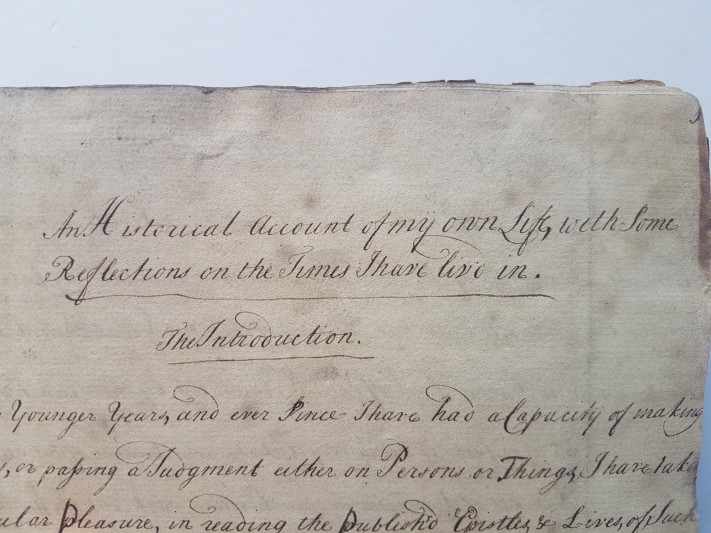Dr Hugh Maguire, Director, The Dr Williams’s Trust, writes: These three folio volumes form a welcome addition to the library collections, complementing as they do the existing holdings and the Trust’s aspirations for the future growth and refinement of its richly diverse collections. The purchase was supported not only by the Friends of the National Libraries but the Friends of Dr Williams’s Library and individual trustees of the Dr Williams’s Trust.
London-born Calamy (1671-1732) through his extensive writings remains integral to the study of British Protestant dissenting traditions. A moderate non-conformist himself, his own publications were initiated in 1702 with the Abridgement of Mr Baxter’s Narrative; the Dr Williams’s Trust owns, by happy coincidence, the most extensive manuscript collection on the nonconformist Richard Baxter (1615-91). Calamy’s Abridgement…was seen as a popular and public defence of non-conformity in the early 18th century, the period in which the Dr Williams’s Library was founded to support the education, in the broadest sense, of dissenting ministry. On Williams’s death (1716) Calamy was the leading Presbyterian minister in London.
However, comparatively little manuscript material associated with him appears to survive and the rediscovery of this manuscript is fortuitous. Of an original five identified copies, only one other appears to have survived (an incomplete copy held at the British Library). Internal evidence suggests that this is what came to be known as Manuscript B – ‘a copy in three volumes’, which was in the ownership of Calamy’s immediate family, having been collated by his son Edmund, and was the basis of An historical account of my own life… Exact passages in the John Towill Rutt (1760-1841) edition (1830) complement our manuscript and indeed the manuscript highlights passages that were omitted in published versions, providing revealing insights into Calamy and the culture in which such passaged were deleted. The newly acquired manuscript, with its many annotations (pencil) add to our insights and understanding on the publishing history of the original Calamy. Many bracketed passages in the manuscript provide insights into family life and circumstances, especially personal and financial details. These, at some point, were obviously deemed inappropriate for wider public consumption, most likely by Calamy’s descendant Michael Calamy (d.1870). There are, for example, accounts of the melancholy which beset his first wife and observations on the influence on her of the writings of Sir David Hamilton (1663-1721).
The Dr Williams’s Library has agreed a partnership with the John Ryland's Library, University of Manchester and, in due course, its collections will be accessible there. The Trust is firmly committed to seeing the collections grow in the years ahead, and thereby continuing the legacy and vision of the original founder, and by association celebrating the riches of the dissenting traditions across Britain and beyond.
